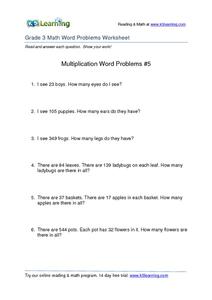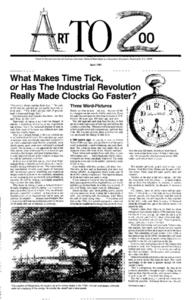San Francisco Public Utilities Commission
Recycled Water: A Smart Way to Reuse Water
Learn about wastewater and recycled water with a science reading activity. After learners finish a two-page passage about conserving the water supply, they answer six comprehension questions about what they have read.
K12 Reader
The Pot is Hot
What do a pot and a robot have in common? They both end in -ot! Kids practice their -ot words by reading the short poem included here and then tap into reading comprehension skills by answering the three questions.
University of Wisconsin
Planting a School Rain Garden
Finally, the day has arrived for introducing plants into the rain garden. If you have been following the entire unit, this will serve as a helpful guide for planting day. If you have not been using the previous lessons in this unit with...
PEGAMES.org
Gluestick Bowling
Have to stay indoors for a PE class? All you need are bean bags and glue sticks, and you have yourself a bowling alley! Check out this activity, which goes beyond a traditional bowling game to give your class members the opportunity to...
K5 Learning
Multiplication Word Problems #5
How many legs to 349 frogs have? How many ears are on 105 puppies? These and other fun multiplication word problems will have learners applying their math skills to realistic scenarios using two- and three-digit multiplication.
Curated OER
Running Out of Time: Letter to a Character
Once your learners have a firm handle on the characters in Running Out of Time, invite them to write letters to chosen characters about the events of the novel. Pupils then share with others who wrote to the same character.
Perkins School for the Blind
High Stepping
Learners who are blind or have visual impairments learn to take high steps in order to improve their balance and mobility. They start by marching in place, and then march around the room. Finally, they attempt to step over a towel as...
Curated OER
The Color Purple: K-W-H-L Strategy
Learners can chart what they know, what they would like to know, how they plan to learn, and what they have learned from Alice Walker's The Color Purple. Using questions about women's rights, kids study the themes of the novel...
Curated OER
Punctuating Dialogue
What did she say? Invite your class to make sense of these grammatically incorrect sentences by adding in punctuation and capitalization. All of the sentences include dialogue, so learners will have to practice their knowledge about how...
Virginia Department of Education
Order Up!
Order in the math class! Scholars learn to evaluate expressions using the order of operations. A game has them rolling number cubes to determine numbers to use when evaluating.
Oleh Yudin
iCrosss
Did you know that a soccer ball is very similar to a truncated icosahedron? Both have 32 faces, but while a truncated icosahedron is made up solely of flat hexagons, a traditional soccer ball has 12 pentagons and 20 hexagons, each curved...
Special needs in Music
Silent Practice
Don't have a keyboard in the classroom but still want to teach piano theory? No problem! Learners engage in "silent practice" as they play classic songs like "My Country 'Tis of Thee" on a printed keyboard image. Use the images on the...
Teach Engineering
Get Me Off This Planet
What do Newton's Laws have to do with getting from Earth to Mars?The activities in this resource show how Newton's Laws work with rockets to get them into space. Background information includes facts about orbits and how orbits...
John Talavera
Autism iHelp – Sorting
Here is an app that will help kids sort objects! Sorting is an action that promotes cognitive flexibility and executive function. It is a key skill used in categorizing scientific data, making generalizations, and is foundational in...
Peter Nagy
Virtuoso Piano Free 3
This may be as close to playing a piano as it is possible to get without actually having a physical instrument in the class. Learn the names and sounds of keys, play a solo or a duet, and practice scales or any song you'd like–all for free!
Hopscotch Technologies
Daisy the Dinosaur
Have you ever wanted to tell a tyrannosuarus rex what to do? Here's your chance! Introduce youngsters to the world of computer programming with an easy and adorable game in which a dinosaur follows your every command.
ESL Kid Stuff
Measuring Parts of the Body
"How tall are you?" "Who has the longest arms?" As part of a study of the names of various body parts, language learners use rulers and tapes to measure parts of the body.
Balanced Assessment
Initials
Learners explore the meaning of groups formed through permutations and combinations with an activity that asks individuals to determine the total number of pupils needed to guarantee that at least one pair has the same initials....
Virginia Department of Education
Rational Speed Matching
Ready, set, go! Individuals practice converting rational numbers between fractions, decimals, and percents. A speed game has teams match the three forms of rational numbers on a number line.
Curated OER
Auxiliary Verbs (To Be, To Do, To Have) 1
In this auxiliary verbs (to be, to do, to have) worksheet, students fill in ten blanks in ten sentences with the correct auxiliary verb to make each one grammatically correct.
Curated OER
How Has Technology Affected the Presidential Election Process in the U.S.?
Students measure technological advancements as they consider how they impacted the election process in the United States. In this presidential politics lesson, students research technological changes since the 1900's and create...
Curated OER
Make, Let and Have
In this ESL activity worksheet, learners use their language skills to fill in the blanks in 7 sentences with the words make, let, or have.
Curated OER
What Makes Time Tick, or Has the Industrial Revolution Really Made Clocks Go Faster?
Students explore the concept of time both historically and in their own lives. Students count the number of times they refer to a clock and the number of scheduled and unscheduled activities in their lives. Students discuss how the...
Curated OER
Everybody Has a Story
Students read short stories and folk stories to explore oral history and story. They interview elderly family members and/or others in the community and record these stories and histories. They evaluate in a final essay what they have...
Other popular searches
- 1st Grade Grammar Has/have
- Helping Verbs Have Has
- Has and Have
- I Have Who Has
- I Have Who Has Game
- Using Has and Have
- Has Have
- Have To/has To
- Verbs Has and Have
- Have Got Has Got
- Have Has Had
- Language Has and Have























